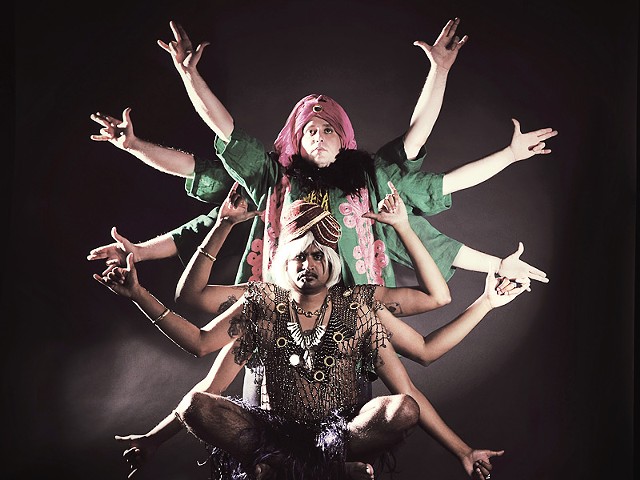Don't let Nellie McKay's plucky voice and immaculately coiffed blonde mane fool you: She's no throwback. Sure, her latest record, Normal as Blueberry Pie, is a tribute to silver-screen legend Doris Day, and her refurbished arrangements feel totally at home with vintage music-box waltzes, ukulele-strummed gypsy jazz jaunts and time-honored torch songs. But as McKay's previous three records have shown, her pop instincts are as progressive as her PETA-friendly politics. From the zombie dance strut on 2007's Obligatory Villagers to the dizzying hip-hop diatribe on her double-album debut, Get Away from Me, McKay's weirdly charming persona seeps through in everything she touches. B-Sides caught up with Nellie McKay to discuss romance, cynicism and Doris Day.
B-Sides: How did you approach making this album? Were these songs that you knew, or did you have to do a lot of research?
Nellie McKay: No, I already knew Doris Day better than I knew myself. It's weird; with public figures you almost know more about them than you do with your own life. Doris Day had such an influence on me. I listened to her at a time when I was trying to escape the violence of our culture, and she's always been a reassuring voice. She's always been someone I can turn to.
When did you first start listening to the music of Doris Day?
Back when I was in high school. We went down to Baltimore for a protest — we were living in the Poconos at the time — and I picked up a record of hers at the local record store and listened to it all the way back on the bus. It was called It's Magic, and it was filled with selections from Doris' movies. On the cover she was on a boat — but it was a fake boat — and she had perfect hair, and she looked really happy. She always had tremendous warmth, no matter how dolled-up she was.
On past albums, you've dealt heavily in satire — songs such as "I Wanna Get Married" or "Mother of Pearl" would put traditional American virtues up for inspection, and then you'd completely lampoon them. But on this new record, you treat the music and era of Doris Day with utmost reverence. How do you square those competing impulses of satire and reverence?
The ideal is beautiful. It's just when it's used to mask all sorts of injustice or domestic malaise is when it's the problem. I mean, when someone's genuinely happy, it's such a beautiful thing, you know. Same when Obama got in. I mean, the happiness. When someone's just faking happy, there's nothing worse.
But if you could live in the idyllic world of a Doris Day and Rock Hudson movie, would you?
Oh, I love their apartments! For sure. I love romance, and it's nice to aspire to something better. Like, there's an ad for Rebel Without a Cause where they have a picture of James Dean that says, "This kid has a chip on both shoulders!" It's kind of a funny ad. It seems like people grow cynical even before they know anything. You see a little kid, and they're so sweet, then they start to turn into these surly teenagers. They pretend they don't hear you, and they say, "Whaaat?" And it's just horrible! And you just think, 'You were this sweet little kid, what happened?' So I think at its best, the old-fashioned thing, it makes you want to aspire to something better.
You've been receiving comparisons to Doris Day for much of your career — you're both musicians, animal-rights activists, and you've even shared a similar hairstyle. Was it intimidating to put yourself toe-to-toe with one of the most popular female recording artists of all time?
Oh goodness, yes! We're not toe-to-toe. [Laughs] Maybe if my hair was really ratted I'd reach her toe. She is, oh God. I tried not to make it sound like I was imitating her, and it's hard because I know her recordings so well. I wanted to make a nice, happy little album that would hopefully make people check out her stuff because she's got some marvelous recordings out there.





